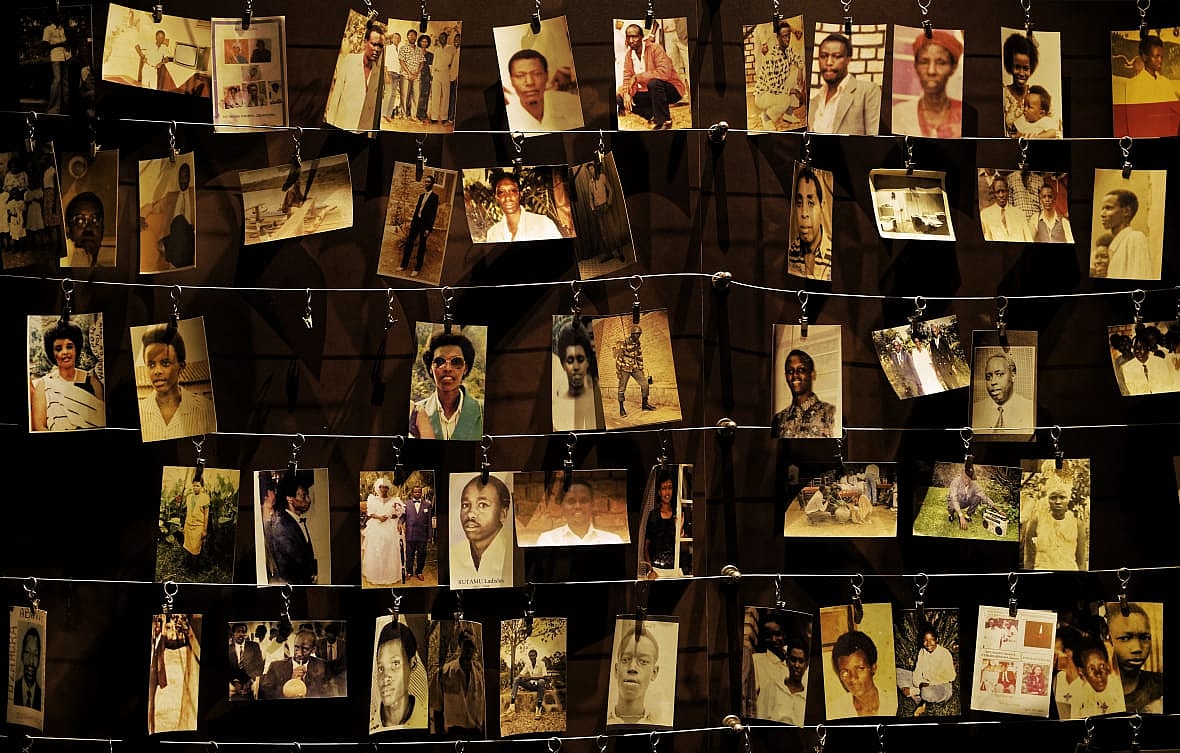CAPE TOWN, South Africa (AP) — One of the last remaining suspects accused of orchestrating the brutal massacres of the Rwandan genocide nearly 30 years ago plans to apply for political asylum in South Africa, his lawyer said Tuesday.
Fulgence Kayishema, a former police officer in Rwanda, was tracked down and arrested in South Africa last month. An application for asylum would potentially further delay his extradition to a U.N. tribunal in Tanzania and ultimately to his home country for a long-awaited trial.

Kayishema is one of the last four fugitives being sought by the United Nations’ International Residual Mechanism for Criminal Tribunals for genocide and crimes against humanity during the 100 days of horror that unfolded in the East African nation in 1994.
More than 800,000 people were killed when militias made up mainly of members of Rwanda’s Hutu ethnic group turned on their Tutsi neighbors. The killings, an attempt to wipe out the minority Tutsis, were triggered on April 6, 1994, when a plane carrying Rwandan President Juvénal Habyarimana, a Hutu, was shot down, killing him.
The U.N. tribunal charged Kayishema in 2001 with being a central figure in the slaughter of more than 2,000 people seeking refuge at a Catholic church.
He is accused of being one of the leaders of a Hutu mob that killed Tutsi men, women and children who were hiding in the church to escape the sudden eruption of violence. Kayishema and others tried to burn down the church and, when that failed, they used a bulldozer to smash it down, crushing to death the Tutsis inside, according to the charges against him.
Ultimately, more than 2,000 people were killed in and around the church, the genocide indictment against Kayishema says.
The U.N. tribunal wants Kayishema to be sent to one of the seats of the tribunal in Arusha, Tanzania, and then to Rwanda for trial, but it’s unclear how long it would take for South Africa to extradite him.
Now 62 years old, he had been on the run for half his life before his May 24 arrest.
Kayishema also was charged in South Africa with 54 counts of immigration offenses and fraud. He allegedly used fake names and other falsified information to acquire documents to enter and live in South Africa, where he had been for at least 20 years, according to the charges filed by prosecutors.
He appeared in court Tuesday for that case. The proceedings could have delayed his extradition even if Kayishema did not intend to seek asylum, a move that requires further proceedings.

His lawyer, Juan Smuts, told reporters Tuesday that Kayishema left Rwanda in 1994 “out of fear for his life.”
He hid in at least three other African countries — Congo, Mozambique and Tanzania — before arriving in South Africa sometime between 2000 and 2002, Smuts said, adding that Kayishema was 62 years old and not 61, as South African police previously stated.
Smuts said the immigration and fraud case against Kayishema would have to be put on hold while his application for asylum was considered. South African prosecuting authority spokesman Eric Ntabazalila disputed that and said the asylum claim had no bearing on Kayishema’s criminal case.
However, any extradition will likely be delayed for at least two months after the judge postponed Kayishema’s South African court case until Aug. 18. He has not entered a plea on any of the charges and remains jailed.
The massacre at the Nyange church in western Rwanda was one of many horrific episodes in the 1994 genocide. A memorial to the victims now stands in place of the church.
Aloys Rwamasirabo, who lived in the Nyange area and knew Kayishema, survived the massacre but said nine of his children were killed. Rwamasirabo said Kayishema, who held the rank of police inspector at the time, ordered many of the killings.
“My wish is that he is brought back to Rwanda (to) face justice in the presence of survivors whom he committed crimes against,” Rwamasirabo said. “He carried a lot of power, and his orders were obeyed.”
Kayishema didn’t speak during his latest court hearing and stood and faced the judge through most of it while surrounded by seven armed police officers. But he smiled, waved and gave a thumbs-up to some of his family members sitting in the courtroom.
TheGrio is FREE on your TV via Apple TV, Amazon Fire, Roku, and Android TV. Please download theGrio mobile apps today!

